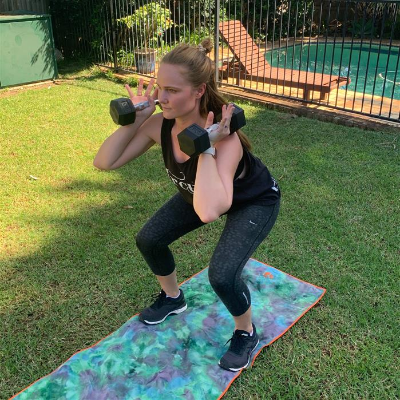
Resistance training is not only heavy strength training in the gym to build muscle mass. Resistance training can be body weight exercises, resistance bands, free or machine weights. There are a number of benefits to this type of training:
Injury Prevention:
Being strong will reduce the excessive load on our bodies joints and soft tissue (muscles, ligaments, tendons). A resistive strength program can address any weakness allowing our body to move freely without overload, avoiding imbalances and potentially pain. Maintaining a strength program is so important for injury prevention, especially in the athletic population.
For example, a swimmer without adequate shoulder strength can develop rotator cuff injuries due to the repetitive nature of the sport.

Improving performance
In the athletic population, strength is vital. Through all sports, from soccer to golf, having increased strength throughout your full range of motion will help to improve your performance. Eg: Increasing core and glute strength in recreational golfers was found to increase ball speed and carry distance by 5-10% (1). This is also appropriate for the general population. If you are a daily walker, the stronger you can become the further you will able walk without pain.
Bone health:
Resistance training will increase your bone density and bone strength, reducing the risk of osteoporosis and other bone injuries such as stress fractures and broken bones. Strength has also been linked to increased balance and reduced risk of falls, which prevents fractures associated with falling.
Disc health:
We can improve the strength of the intervertebral discs (IVD) in our spine with resistance training, increasing our bodies ability to take load through the spine without injury. Runners and joggers were found to have better IVD tissue quality than those that were not physically active (2). Having stronger muscles surrounding the spine will also help to stabilise the back and reduce the occurrence of low back pain.
General health:
Resistance training has massive benefits in your overall health and well being. Including weight management, increasing mood, reducing anxiety and depression. It can also benefit chronic health conditions such as diabetes and heart disease.
If you have any questions about resistance training, or if you are after a program to get started, get in contact with one of our Seaforth physio's at Active Answers Physio.
Written by Physiotherapist Michael Gilbert
References:
- Loock et al. (2013). Core muscle activation and activity throughout the different phases of the golf swing. Strength and conditioning journal. 35(5):1-15
- Belavy et al. (2017). Running exercise strengthens the intervertebral disc. Scientific Reports, 2017; 7: 45975